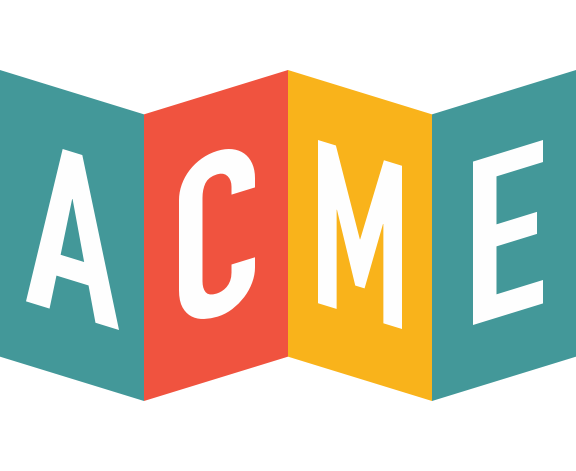
How to Get Sponsored for an Event?
Question number 1 every nonprofit asks when planning an event: how the heck are we going to pay for it? Well-endowed museums, gardens, and other cultural institutions might have lavish parties and already figured into their budget. But smaller institutions might need a little extra to make their gatherings into memorable and efficacious soirees. One excellent solution to help put a dent in your party expenses is to book a sponsor.
Sponsorship can come in many forms, from corporations or individuals, and should always benefit both the organization and the patron. Getting sponsorship might feel like job-seeking in a harsh economic climate, but the results are well worth it. In this article, we’ll teach you everything we know about getting your event sponsored.
How to get sponsored for an event?
And what exactly does that mean?
We’re all familiar with the basic concepts of sponsorship. In exchange for support, either financial or in-kind, a business gets their name plastered all over the event venue with various marketing materials: table cloths, t-shirts, brochures, stages, etc., etc.
Patron companies’ sponsorship objective is to reach a target audience and gain favor by supporting a good cause or community institution. Consumers love to know that a company is going above and beyond to support meaningful events, and sponsorship can be a great strategy to this end.
And on the other side of this coin, nonprofits benefit through having event costs cut, if not completely eliminated. Additionally, for smaller organizations, having the support of a recognizable brand can lend credibility. Both entities, nonprofit and sponsor, also reap the benefits of audience attention.
It takes work on both sides to make a sponsored event successful, and fruitful for everyone. But the mutual benefits are well worth the effort.
Some issues faced by nonprofit events.
From financing, to catering, to getting people to come – what are some of the top concerns nonprofit event planners need to address?
- Getting your event out there. Unless your event is already a well-established staple in the public view (and even if it is) you need to market your event, and invite and register your guests.
- Venue, transportation, and catering. Where is your event being held? How are guests getting there? What food and refreshments will you offer? If it’s an overnight event, where are your guests going to stay?
- Your event goals. What is your organization, or a cause you support, going to get out of this event? Who benefits, and what actions and technologies do you need to employ to make sure your objectives are achieved?
- Features, guest speakers, and celebrity guests. Whether it’s David Attenborough attending your event or a local environmental educator, your features will need an invitation, accommodation, and potentially compensation. If your event is very high profile, there may also be media coverage issues to think about.
- Resources. This is the bottom line: how and where are you going to get everything you need to put on this event?
These are the things nonprofit event planners need to think about, whether or not they have sponsorship. And patronage can truly make all the difference between a successful event and a flop. We’ll go over that in the next section.
Why do I need a sponsor?
You might not. Well-established museums and other organizations can often find all the resources they need under their own roof. But then again, couldn’t we all use a little help sometimes? Here are the main reasons your event needs a sponsor:
- Sponsorship lends credibility. The name of a well-known brand on your event establishes trust with audience members who may not be familiar with your work. This also communicates a testimonial to other organizations in your field about the work you do.
- Sponsorship allows you to grow your audience base. With the enlarged budget that comes with sponsorship, you can support more guests, better features at your event, and enhanced marketing efforts.
- Sponsorship solves problems. Sponsors such as hotels, restaurants, and other resource-centered companies can answer questions such as where your event is going to be held.
- Sponsorship allows you to reallocate funds. Nonprofits always have some aspect of their cause or organization that could use a little extra funding. Having a sponsor means you can put the money you would have otherwise spent on event details to better use.
What kind of sponsors are the best?
The best kinds of sponsors are the ones closest to you. Sometimes called “bull’s-eye targets,” you should start your quest for event patrons with those businesses and individuals who are the most likely to say yes. You will find these sponsors in your most avid supporters, the organizations who already know and love your work.
Vendor sponsors represent another well-resourced option for event patronage. These are companies offering either products or services who may fund as well as cater certain aspects of your event.
- Alcohol brands (at alcohol-friendly gatherings) may sponsor your event in exchange for marketing opportunities and a featured cocktail or two which includes their signature spirit.
- Food sponsors can take care of all of your event’s catering needs. Soliciting sponsorship from local restaurants can be an excellent opportunity for you, the sponsor, as well as the community at large.
- If your event is centered around a cause, audience members will be more than happy to donate. You can also seek out sponsorship from charities who share your passion for the movement at hand.
- Vendor organizations are additionally an excellent opportunity to receive in-kind donations. Local companies often have greater access to useful resources which can help offset much of the expenses associated with running an event. To find out more about in-kind donations, check out our other article: In-Kind Donations.
How to Reach Out to a Potential Sponsor
Nonprofit directors know that in this world grant writing is a super power. And reaching out to sponsors is a similar skill. So once you’ve identified your sponsorship target, you’ll need to write a specially-crafted sponsorship letter to get them on board. Here’s how:
- Start with a formal introduction. What is your organization, and what opportunity are you presenting to this sponsor? It’s vital that you keep this section short. Avoid giving your target a multi-paragraph essay on your nonprofit’s history and mission. Get straight to the point.
- Tell your target why you’re reaching out. This is your opportunity to make it personal. Don’t send out a generic request for money. Tell your target why you’re asking them, specifically. Describe the relationship you share and how you believe their company will uniquely benefit from this opportunity.
- Tell them about your audience. Who are they, what do they like, and how will they interact with your sponsor’s brand? Avoid generalizations, and include useful, easy-to-understand audience data to convince your target.
- Demonstrate expected outcomes. Think of your event like a mixer for the audience members and your target sponsor. How will your event facilitate a meeting of the goals of both your sponsor and your audience? And what will their relationship be after your event? This is your opportunity to tell your target what they will get out of this sponsorship.
- Give them a specific date and time indicating when you intend to follow up. This can be a call, an email, or (someday) an in-person meeting. This demonstrates that you are invested in your ongoing relationship, and not just casting lines into the water to see which sponsor bites first. This also may accelerate their response: either with a decline, or to learn more about this opportunity.
How ACME Can Help
ACME is a comprehensive ticketing, membership, and POS platform serving museums, zoos, historic houses, and many other cultural institutions. Our extremely customizable visitor experience allows you to analyze audience data so you can give them exactly what they want, when they want it. And if you know your audience this well, you can communicate to potential sponsors just how well they’ll get along with your audience.

